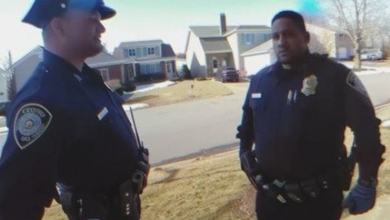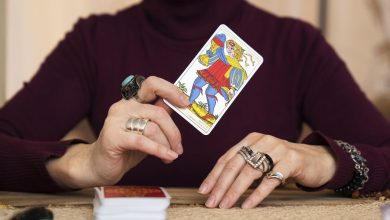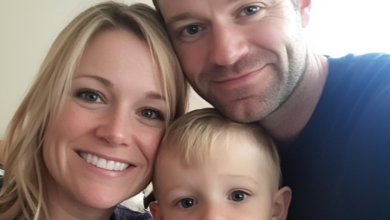I fought hard to stay a constant in my son’s life, but his stepmother’s seemingly flawless world was always in the background. One Christmas, we found ourselves under the same roof, and the silent competition between us finally reached its breaking point, forcing me to confront my worst fear: Was I losing my son for good?

After my divorce, I became the sole caretaker of my 7-year-old son, Austin. Our modest home in a quiet suburb of Minnesota became both a sanctuary and a daily reminder of everything I had lost.
The laughter and shared family moments that once filled the house had been replaced by an overwhelming silence, especially as the holidays approached. I gazed at our worn dining table, replaying memories of lively Thanksgiving dinners.
But that year, there was no money for turkey or pie, no energy to hang decorations. The crushing weight of overdue bills and relentless exhaustion was suffocating.
Austin, with his untamed blond hair and innocent eyes, couldn’t grasp the invisible battles I fought every day.
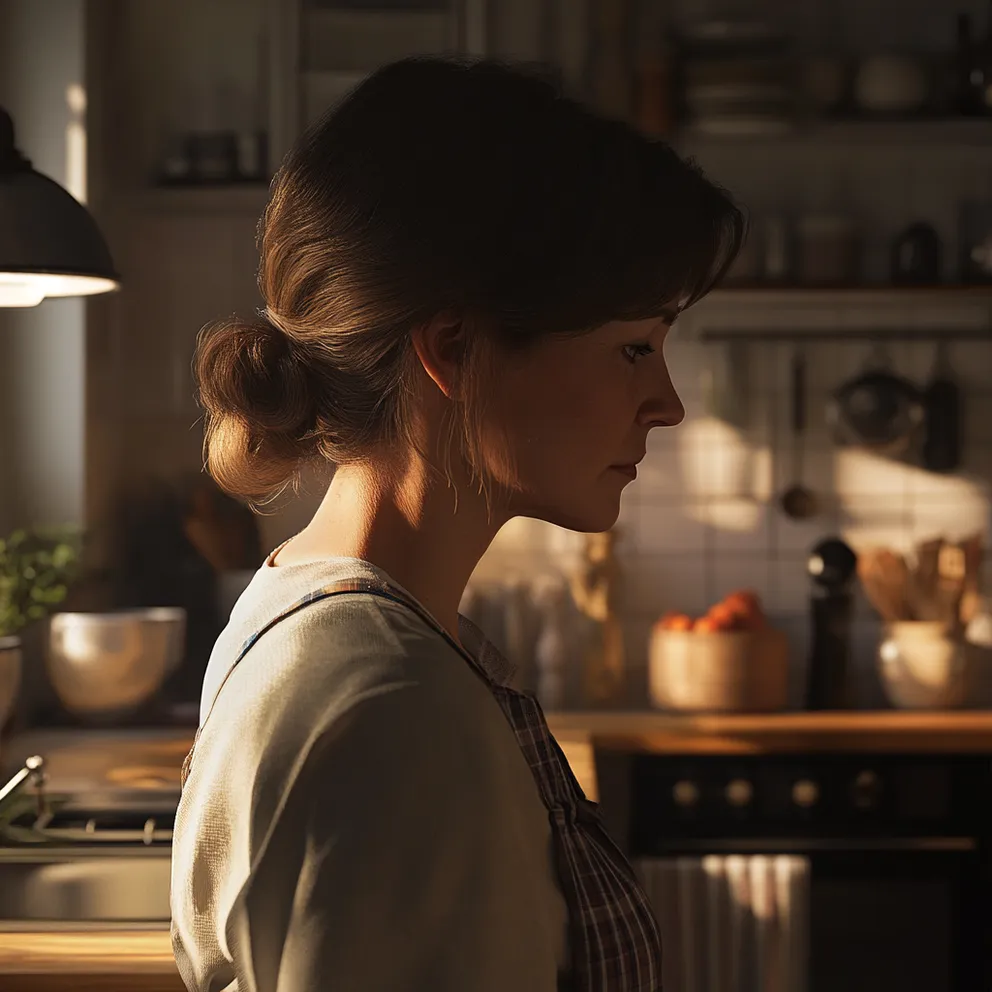
“Mom, can we have a Thanksgiving dinner this year? You know, with turkey and mashed potatoes?” he asked one morning, his voice brimming with hope.
“I’ll do my best, sweetheart,” I said, though I knew deep down that it was impossible.
Then, Roy, my ex-husband, called.
“Emma, let me help,” he offered kindly. “I can send money or whatever you need.”
“No, Roy,” I cut him off sharply. “I’ve got it under control.”
But I didn’t. The mounting bills and my declining health made that clear. When Roy suggested Austin spend Thanksgiving with him and his wife, Jill, I reluctantly agreed.

Jill, with her effortless grace and unending composure, was everything I wasn’t. I resented her for it. But I couldn’t ignore the truth: Austin deserved the kind of Thanksgiving I couldn’t provide.
“Just until I get back on my feet,” I told myself as I let him go. “It’s not forever.”
Still, watching him pack his things broke my heart.
On Thanksgiving Eve, the frosty air hinted at the harsh winter ahead. Inside Roy and Jill’s house, however, the warmth was almost overwhelming.
Jill greeted me with her signature bright smile when I arrived. Her invitation a week earlier had taken me by surprise, and although my pride had urged me to decline, a quieter voice reminded me to go for Austin’s sake.
Their dining room was stunning—a pristine white tablecloth, golden candles, and artfully arranged autumn leaves adorned the table. Everything sparkled, from the plates to the silverware.
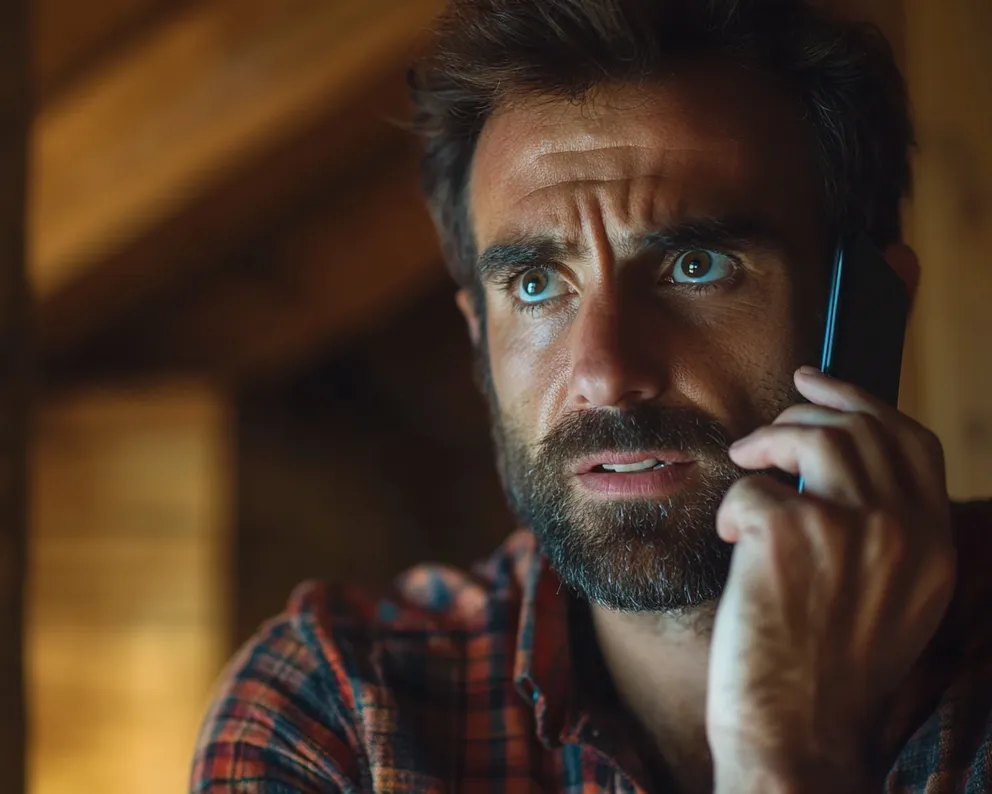
“Emma, you’re here!” Jill’s voice was sickly sweet. “I might have gone a little overboard this year.”
I forced a tight smile. “It’s… lovely.”
Austin ran up to me, his excitement palpable. “Mom! Did you see the turkey? It’s huge! And Jill made these cranberry tarts—they’re amazing!”
“That sounds wonderful, sweetie,” I replied, my smile strained.
Jill floated through the room, her every movement poised and confident. She served wine, made everyone laugh with light-hearted jokes, and even managed to make an apron look glamorous.
“Austin helped me in the kitchen,” she remarked casually, her tone dripping with accomplishment. “He’s a natural.”
“Really? That’s nice,” I said, trying to keep my voice steady.

As the evening unfolded, I felt increasingly out of place, unsure how to engage. Then, during the family gratitude tradition, Austin broke my heart.
“I’m thankful for Dad,” he said, glancing at Roy, who smiled proudly. “And Jill—she makes the best desserts and got me that video game I wanted. And… I want to live here. With Dad and Jill. All the time.”
My chest tightened. “Austin,” I whispered, “you don’t mean that.”
“I do, Mom,” he replied, avoiding my gaze. “It’s just… easier here.”
I caught Jill’s eyes for a fleeting second. Was there satisfaction in her expression? Or was I imagining it?
Standing by the window later, I stared into the frozen darkness, my thoughts racing. Am I losing him? No. I can’t let that happen.
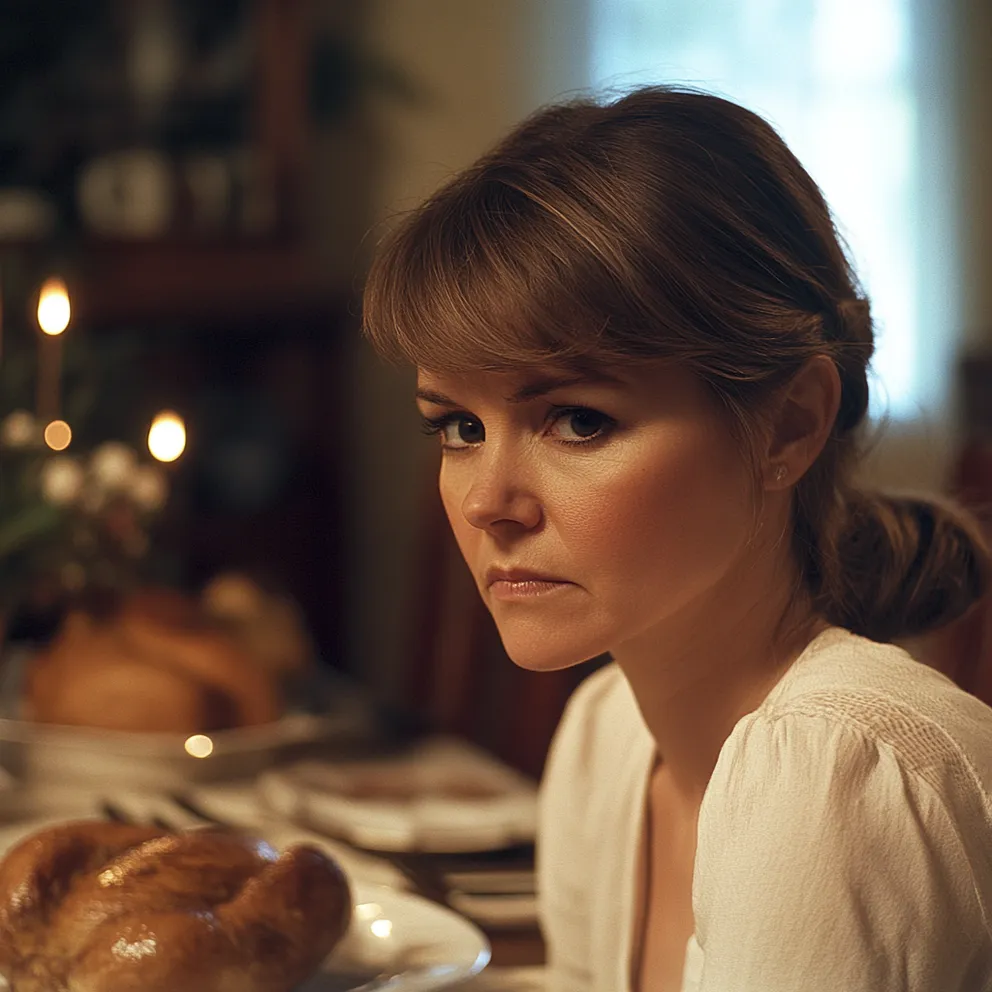
Determined, I threw myself into rebuilding my life. Each pre-dawn jog through the silent streets felt like a fight against Jill’s perfection. I juggled two jobs, scrubbing dishes at a diner by day and cleaning office buildings at night. Exhaustion became my constant companion, but I pressed on, clinging to the hope of a better Christmas.
After weeks of relentless effort, I finally managed to buy Austin the LEGO set he’d been dreaming of. It had cost me every spare penny, but I didn’t care. I called him one evening, eager to share my excitement.
“Hi, Mom!” he said, his voice muffled under blankets. “Guess what? Jill’s already decorating for Christmas.”
“Well, so am I,” I said, forcing cheerfulness. “The tree’s up, and I even hung all our old ornaments.”
“Really? Like the snowman ones? That’s awesome, Mom.”
“Of course. I want Christmas to be special for us. Will you come?”

“I want to, but… can Dad and Jill come too? They’ve been planning stuff.”
I swallowed my pride. “Of course, sweetheart. The more, the merrier.”
On Christmas morning, the house gleamed with lights, and the familiar ornaments hung proudly on the tree. Austin’s face lit up as he walked in. “Mom, it’s perfect!”
Dinner went smoothly, but my heart sank when Austin opened Jill’s gift: the same LEGO set I had worked so hard to buy. I felt the room spinning, and moments later, I fainted.
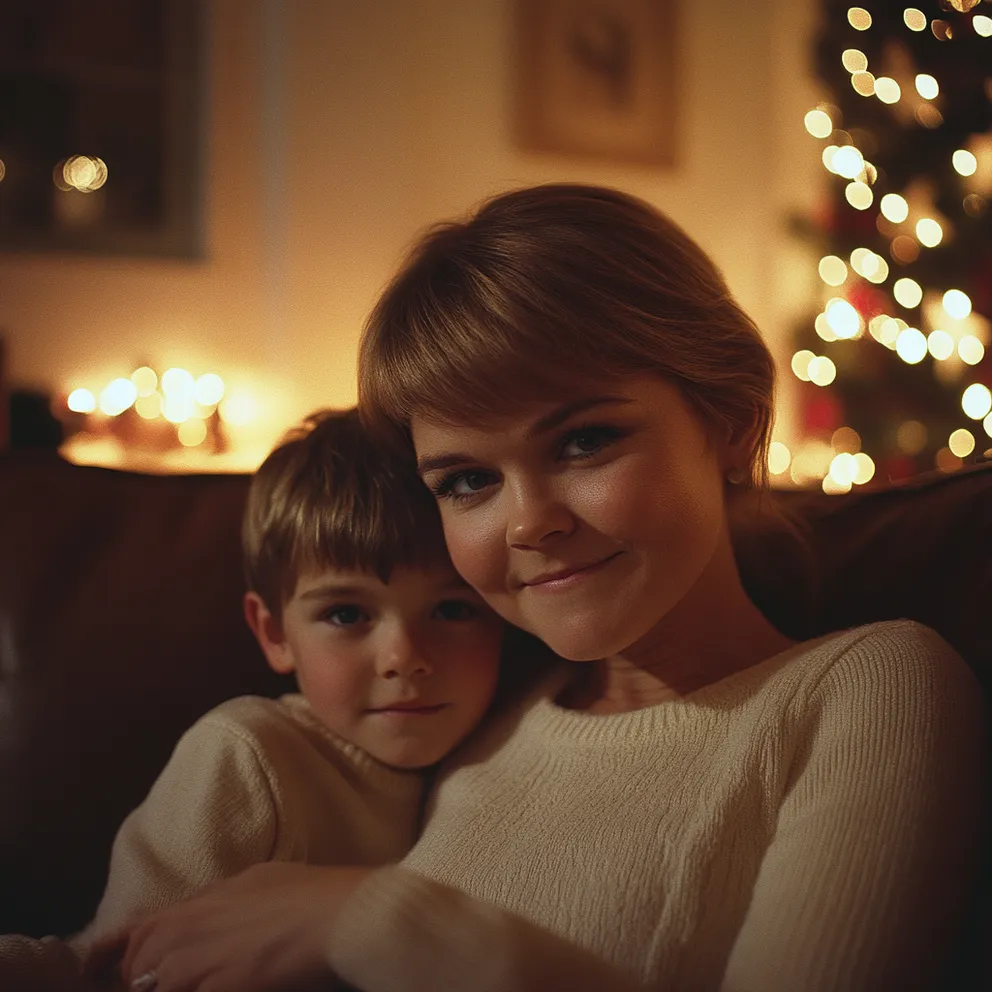
When I woke up, Roy and Jill were by my side. Tears poured out as I confessed my struggles. To my surprise, Jill said, “I don’t want to replace you, Emma. I just want to be part of Austin’s life.”
Later, Austin whispered, “I miss you, Mom. I miss us.”
That Christmas wasn’t perfect, but it brought us closer as a family. We decided Austin would always have his home with me, and we exchanged Jill’s duplicate gift for something else. Together, we found a way forward, imperfect but united.


